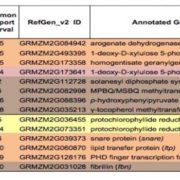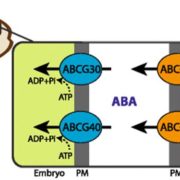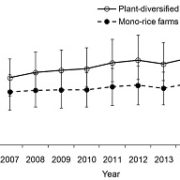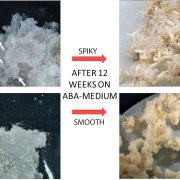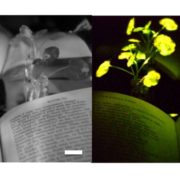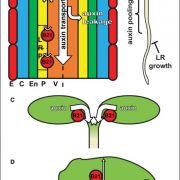Production of low-Cs+ rice plants by inactivation of the K+ transporter OsHAK1 with the CRISPR-Cas system
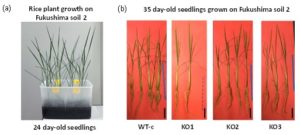 Nuclear accidents in recent years such as the Fukushima incident during the tsunami in 2011 revealed the detrimental effects of leaked radioactive cesium (Cs) in environmental soil and water. Due to Cs’s chemical similarity with potassium, an essential macronutrient for plants, cesium is taken up by potassium transporters even when it is present in small amounts. Consequently, Cs can make its way to the edible parts of plants there are destined for the food chain. In this study, Nieves-Cordones et al. generated knock-out mutants the of potassium transporter OsHAK1 using the CRISPR-Cas system. Knock-out mutants show dramatically reduced uptake of cesium. In addition to lab experiments, the authors examined these knock-out mutants grown in radio-cesium contaminated soils and found a similarly reduced uptake of cesium. This paper shows a very practical approach to avoid cesium contamination in rice plants. Plant J. 10.1111/tpj.13632
Nuclear accidents in recent years such as the Fukushima incident during the tsunami in 2011 revealed the detrimental effects of leaked radioactive cesium (Cs) in environmental soil and water. Due to Cs’s chemical similarity with potassium, an essential macronutrient for plants, cesium is taken up by potassium transporters even when it is present in small amounts. Consequently, Cs can make its way to the edible parts of plants there are destined for the food chain. In this study, Nieves-Cordones et al. generated knock-out mutants the of potassium transporter OsHAK1 using the CRISPR-Cas system. Knock-out mutants show dramatically reduced uptake of cesium. In addition to lab experiments, the authors examined these knock-out mutants grown in radio-cesium contaminated soils and found a similarly reduced uptake of cesium. This paper shows a very practical approach to avoid cesium contamination in rice plants. Plant J. 10.1111/tpj.13632


